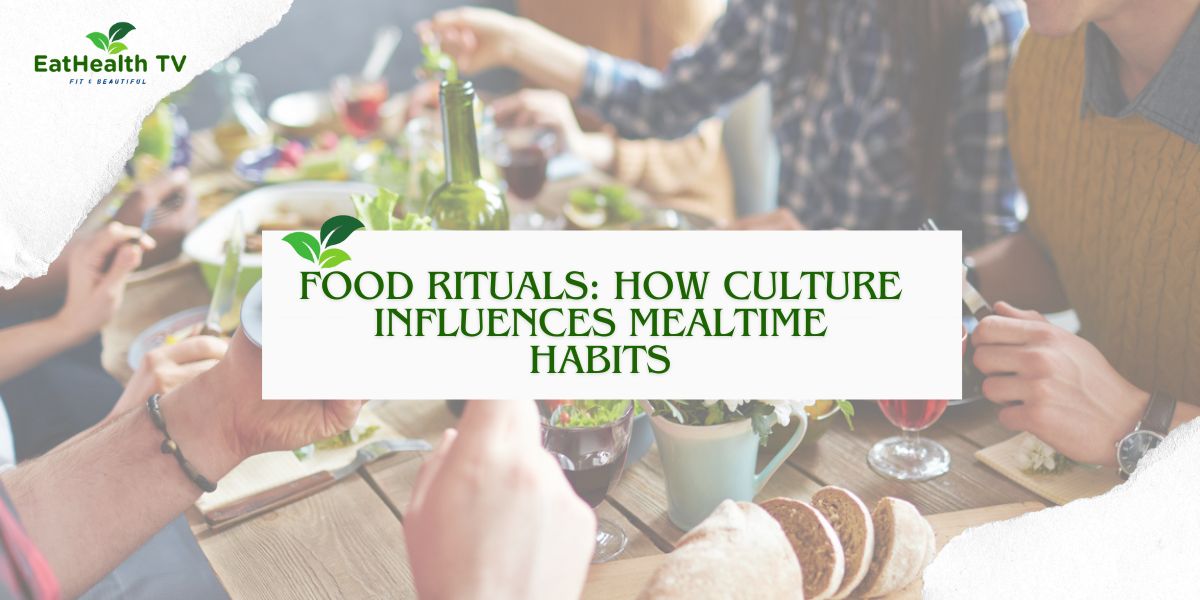Food Rituals: How Culture Influences Mealtime Habits
Nourishing Connections: The Cultural Tapestry of Food Rituals

Food Rituals: How Culture Influences Mealtime Habits
Food is not just sustenance; it is a cornerstone of culture, identity, and social interaction. Across the globe, mealtime is often accompanied by rituals and traditions that reflect the values, beliefs, and customs of a particular society. In this comprehensive guide, we will delve into the fascinating world of food rituals, exploring how culture influences mealtime habits and the significance of these practices in shaping our relationship with food.
The Role of Food in Culture: A Universal Language
- Cultural Significance: Food plays a central role in cultural identity, serving as a vehicle for transmitting traditions, values, and beliefs from one generation to the next. Whether through traditional recipes, ceremonial feasts, or daily mealtime rituals, food is imbued with cultural meaning and symbolism that reflects a community’s history, geography, and social dynamics.
- Social Bonding: Mealtime rituals also serve as opportunities for social bonding and communal interaction. Sharing a meal with family, friends, or neighbors fosters a sense of connection and belonging, strengthening interpersonal relationships and promoting social cohesion within a community.
- Cultural Diversity: The diversity of food rituals around the world reflects the richness and complexity of human culture. From elaborate tea ceremonies in Japan to communal feasts in India and traditional barbecue gatherings in the United States, each culture has its own unique customs and practices that reflect its values, preferences, and culinary heritage. Just as we know Ancient Diets: Exploring Historical Nutrition Trends
Exploring Cultural Food Rituals: A Global Perspective
- Asia: The Art of Tea and Rice: In many Asian cultures, tea and rice hold special significance and are central to mealtime rituals. In Japan, the tea ceremony, or “chanoyu,” is a highly choreographed ritual that emphasizes mindfulness, harmony, and respect. In China, rice is often served as a symbol of prosperity and abundance, with elaborate rituals surrounding its cultivation, preparation, and consumption.
- Middle East: The Tradition of Sharing: In the Middle East, mealtime is a communal affair characterized by generosity, hospitality, and sharing. The tradition of “dastarkhan,” or spreading out a tablecloth on the floor for a meal, symbolizes inclusivity and unity, inviting guests to partake in the bounty of food and conversation.
- Europe: The Art of Slow Food: In Europe, particularly in Mediterranean countries such as Italy and Spain, mealtime is celebrated as a leisurely affair to be savored and enjoyed. The concept of “slow food,” which emphasizes the importance of local, seasonal ingredients and unhurried dining experiences, reflects a cultural commitment to quality, authenticity, and sustainability.
The Influence of Culture on Eating Habits
- Flavor Profiles and Ingredients: Cultural food rituals influence not only how we eat but also what we eat. Different cultures have distinct flavor profiles, cooking techniques, and ingredient preferences that shape their culinary traditions and dietary habits.
- Eating Etiquette and Manners: Cultural norms and etiquette govern how food is consumed and shared within a community. From the use of utensils to dining customs and table manners, these practices reflect social norms and values related to respect, politeness, and hospitality.
- Meal Structure and Timing: The structure of meals and the timing of eating vary across cultures, reflecting cultural attitudes towards food, health, and lifestyle. While some cultures emphasize large, communal meals eaten at specific times of the day, others prefer smaller, more frequent meals or grazing throughout the day.
Conclusion
In conclusion, food rituals are an integral part of human culture, shaping the way we eat, socialize, and experience the world around us. From the art of tea in Asia to the tradition of sharing in the Middle East and the celebration of slow food in Europe, mealtime rituals reflect the values, beliefs, and customs of diverse cultures around the world.
By understanding the cultural influences on mealtime habits, we gain insight into the complexities of human behavior and the universal importance of food as a symbol of identity, community, and connection. As we continue to explore the rich tapestry of food rituals across cultures, let us celebrate the diversity and richness of culinary heritage that unites us as a global community.




